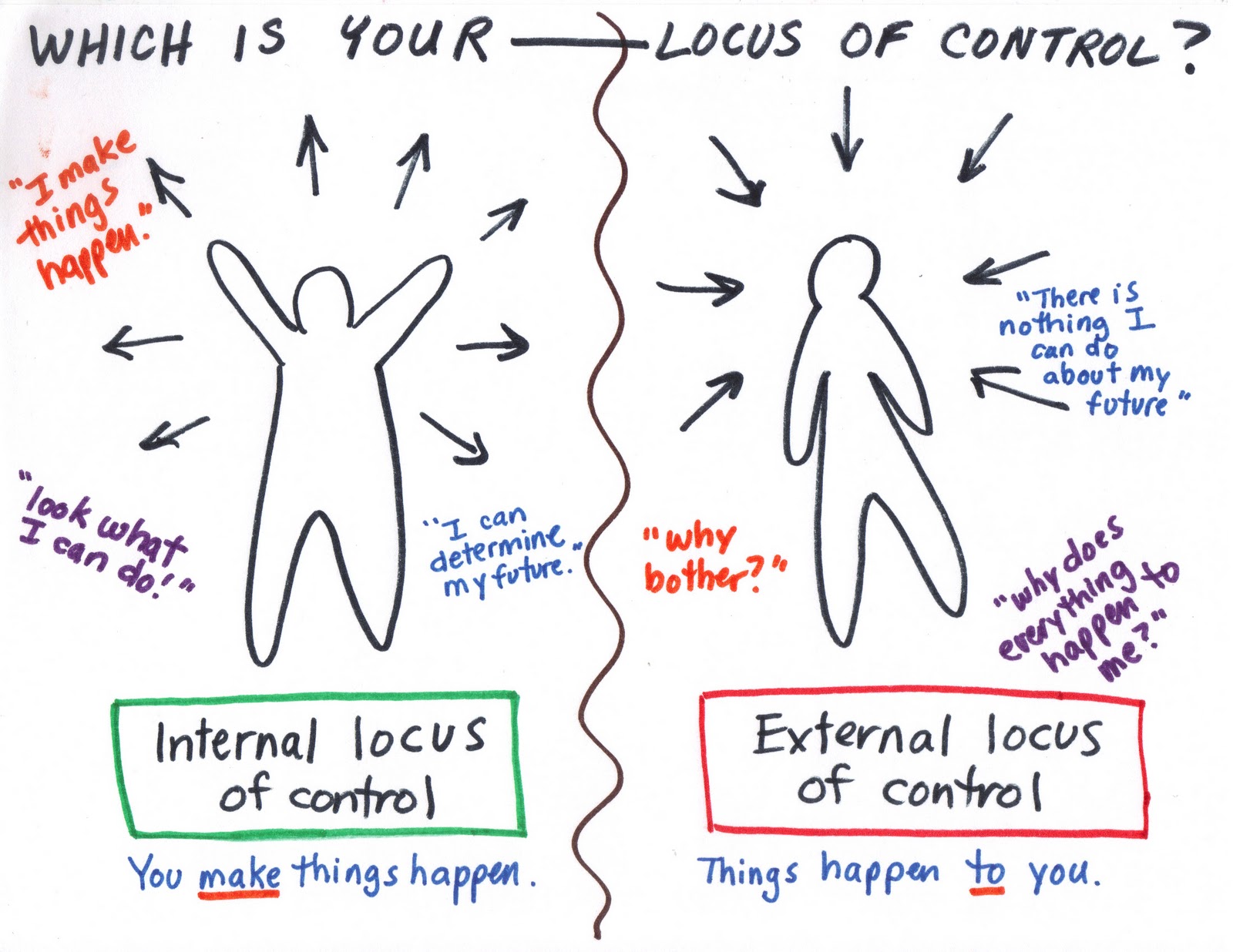
Image courtesy Sally Butler
www.fish4development.co.uk
www.fish4development.co.uk
Locus of control is a concept that explains how strongly someone believes how much control they have over the situations and experiences that influence their lives. Someone who has an internal locus of control believes that they personally have a large part in shaping their own future. They believe that when external events happen to them, whether positive or negative, they ultimately make an internal decision on how they will respond to those events. Someone who has an external locus of control believes that the external events that happen to them, whether positive or negative, happen by chance, luck, bias, or fate. They truly believe that things just happen to them, and they have little to no control over how their lives will play out.
After taking the questionnaire, I got a score of 9 out of 23, which means that I have an internal locus of control. I truly believe that an internal locus of control aligns with my beliefs and how I live my life, but this isn’t how everyone lives, so it’s very important to know how people function as the latter as a practitioner. Being able to identify someone’s locus of control and how to influence them in therapy is very important to their overall health and rehabilitation. As a practitioner, it is important to try and influence those with an external LOC to take an outlook of an internal LOC. Those with an external outlook will blame others, look to us as someone who is fixing or saving them, and be solely dependent on us for their successes, instead of on themselves. One of the basic, but very important principles of occupational therapy is that we encourage our clients to take control of their own lives, including being independent in their everyday activities, decisions, and direction and outlook on their life. Throughout OT school, I have also learned that the client who has a positive outlook and takes an active part in their own rehabilitation, has a higher chance of recovery within a shorter time period. It is so important for us to be each client’s encourager to help them receive the best treatments and outcomes that we can.
Comments
Post a Comment